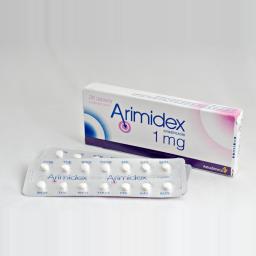Sex can be part of any stage of a woman’s life. Many women may not have a partner, some may be in same-sex relationships or may have a partner with ill health.
The key to enjoying a fulfilling sexual relationship as is understanding ourselves and our partners, and growing with and accepting each other.
As we age we’re constantly developing and changing, but there are some things we can expect to enjoy as much as always and, thankfully, taking pleasure in a loving and caring relationship is one of them. And yes, that can include sex. But as we grow older our attitudes towards, and desire for, sex can change.
It’s important to remember, regardless of your stage of life, enjoying a sexual relationship is not purely about sexual intercourse. It’s about thinking and feeling sexy, touching, kissing, caressing, cuddling, and talking about sex. While many older couples might report their sex drive has diminished, they’re usually referring to their desire for intercourse. They still love, touch, hug and caress, and perhaps even masturbate.
It’s normal for desire to fluctuate, and while there may be many reasons for this, as we grow older the hormone changes associated with menopause may influence desire and arousal for many women. Remember too that a man’s libido may be influenced by age, illness, stress or medication.
Oestrogen loss at midlife causes much of the discomfort (eg vaginal dryness, loss of vaginal elasticity or contact bleeding) that can occur during intercourse. This can create a negative association with sex. Water-based lubricants or oestrogen cream applied locally may help to relieve these symptoms. Lower oestrogen can also influence our perception of touch, and may decrease muscle tone and elasticity of the pelvic floor. Hot flushes and night sweats can impact on sleep, which may make women tired and lethargic and uninterested in sex.
For those who weren’t brought up with safe sex warnings, there’s one simple rule to remember – no condom, no sex!
The good news is that simple lifestyle changes can ease symptoms. Changing what you eat, being more physically active, trying a lubricant and seeking advice from a health practitioner may offer some relief. Talking to your partner about the changes you’re experiencing can also help, as it not only lifts some of your anxiety, but may help your sex life. Studies of women who have used oestrogen and progestogen therapy have found vaginal dryness improves and overall the vagina, vaginal walls and cervix improve in elasticity and thickness. Another factor, increasingly relevant to some women as they age, is changing sexual partners. With the high divorce rate and women outliving men, some women find themselves facing new relationships at an older age. Until menopause is reached women are not totally protected from pregnancy, despite the decline in fertility during perimenopause. The safe sex message is just as important at this time.
The risk of Sexually Transmitted Infections (STIs), including HIV, remains a lifelong concern and knowledge of safe sex practices, including the use of condoms and other preventative measures, is important.
Being born before the age of HIV and other sexually transmitted diseases, such as herpes and the rapidly spreading Chlamydia, many older women commencing new relationships for the first time in 25 years forget about applying safe sex rules. For those who weren’t brought up with safe sex warnings, there’s one simple rule to remember – no condom, no sex!
Once you understand the changes your body experiences as you age, which can influence your sexual drive, and are comfortable in knowing how to deal with those changes, there is no physical reason why you can’t enjoy a safe, happy and satisfying sex life. And the good news is that many women actually find that with age their sex lives improve as they become more comfortable with their bodies and who they are.
It is important that society frees older women from sexual taboos, stereotypes and misconceptions as a way of trying to control their sexuality and sexual behaviour. With information and support, women can challenge negative social attitudes and continue to enjoy and express their sexuality in their own way.
Ten Safe Sex Rules
It’s not who you are, but what you do that puts you at risk of an STI.
- A sexually transmitted disease (STI) can be spread from one person to another during unprotected sex – including the first time you have sex or the 100th.
- Condoms are an effective barrier against most STIs. This includes HIV as well. Some STIs, such as herpes, genital warts and pubic lice, may still be spread even if a condom is used. Remember, condoms are useful for preventing pregnancy as well!
- An STI (which includes HIV, genital herpes & warts, chlamydia, gonorrhea, trichomonas, pubic lice, syphilis and hepatitis B) is an illness or infection that can be spread from one person to another during sex. HIV is a virus that can be transmitted through unprotected sex with someone who has it.
- Safe sex is sex where semen, vaginal secretions or blood are not exchanged between partners. The exchange of these body fluids can occur with the following sexual activities: vaginal sex, anal sex, oral sex, oral anal contact, fingers or objects in vagina or anus if they have these fluids on them.
- Unprotected sex with your regular partner will only be safe as long as both partners are only having sex with each other.
- Withdrawal (pulling out before ejaculation) is not safe because sexual fluids can be released before ejaculation (known as pre-ejaculatory fluid).
- There are some STIs that are able to be transmitted through unprotected oral sex, including herpes and gonorrheae.
- If either you or your partner have an STI, you need to practise safe sex to minimise the risk of becoming infected. See your health practitioner for further advice.
- Lesbians are at risk of STIs. Anyone can catch an STI, whatever their sexual orientation. Practise safe sex by avoiding contact with your partner’s body fluids to reduce your risk of sexually transmitted infection. Use dental dams if you are having oral sex. Dental dams are small sheets of latex rubber that act as a shield between the vagina and the mouth.
- You cannot tell if a sexual partner has an STI. A strong and healthy person may still be infected. Some people may not even know they are infected. You risk getting an STI from any partner who has had, or is having, unsafe sex with another person.
Best Steroid Products Sales
Stanoxyl 50
|
Methyltesto
|
Arimidex
|


